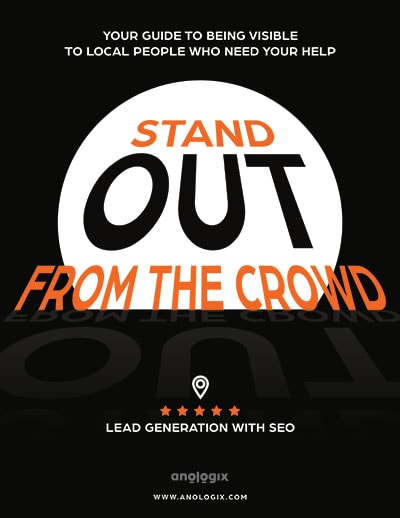
Easy Tips for Increasing Your Search Rankings

As a small business, having a website is essential, but it's no longer enough. At some point, you've most likely heard about "search engine optimization" or SEO. In order to reach the top of the search rankings, you need to make sure your website is performing the best it can and that you have an excellent online presence.
Whether you are competing with other local small businesses in the same niche or you're looking to grab a national or global market, you need to appear on the first page of the search results. Did you know that the top 5 search results get the most clicks from users? It's rare when someone will actually go through more than one page of links to find what they're looking for.
When it comes to SEO, there isn't a specific formula to skyrocketing yourself to the top of Google's search results. However, digital marketing professionals are most likely your best option for achieving successful SEO results. But what's great about SEO is that you can achieve success even without digital marketers - anyone can take part in it. There are lots of proactive steps that small business owners can take to improve their standing in the search results. Here are some easy tips that can help you get started with search engine optimization.
1: Optimize Your Website
You need to make sure that your website is fast and mobile-friendly (responsive). A slow-moving, hard-to-read site is unpleasant for visitors and can have an adverse effect on your SEO. Google takes bounce rate and "time on site" into consideration when determining your ranking. This means that if people are entering your site and leaving immediately, Google will start identifying you as a deficient source of information.
Mobile-friendliness is also crucial. More and more people are turning to their phones and tablets to search for information and purchase products and services. This means that if you don't have an excellent mobile experience, people will begin looking for what they need elsewhere.
Take a look at these articles for some additional helpful information:
- Why Your Local Business Needs a Website Today
- What Elements Does Your Small Business Website Need to Be Successful?
2: Use Clear and Accurate Labels
You need to label everything on your website, including your blogs and all of your content. You should be making clear and distinctive titles for your articles. You can check out a headline analyzer, such as CoSchedule, to show you where you are going wrong, including character count, sentence structure, word balance, and more. You should also be creating specific and accurate tags for your posts, including keywords and phrases related to your niche, along with local terms (such as the city you're located in). Search engines also crawl your photos, so you'll want to add tags to your photos to help increase your ranking.
Make sure you're sticking to accurate tags and labels. Google is pretty diligent about checking for unrelated tags - so don't use them just to get traffic!
3: Create Quality Content
A blog that's related to your business gives you more opportunities to be found by people using search engines. When you create articles that have accurate tags, a good title, and are filled with high-quality content, you'll create a better experience for people who want to return to your website and share your content with others.
4: Add Your Business to "Google My Business"
Google is the most widely used search engine in the world. When you add your business to Google My Business, you can ensure that all of the information - including your address, phone number, hours, photos, products, services, etc. - is accurate and up to date. Google rewards businesses that engage with their system. When you claim your business with Google My Business, you'll have a more professional and confident looking page in the search results.
Check out this article for other places you should consider listing your business online.
5: Build Relationships with Other Businesses and Websites
One good way to boost your online presence is by receiving inbound links. These are links from other websites (particularly ones of high-quality) that send visitors to your page. A great way to get inbound links is by building relationships by making outbound links (links to other websites) and interacting with other businesses on social media.
You should also be linking to other pages on your own website. One great way to strengthen the bond between the pages on your site is by adding at least two links to other pages per article.
6: Encourage Reviews and Engagements via Social Media
While your first thought might be throwing all of your efforts towards getting Google to notice you, it's essential to diversify your visitor streams. Not only will this be better for you long-term, but it is another way to get your business noticed by search engines as well. You should encourage people to leave reviews of your business on websites such as TripAdvisor or Yelp, and to share or comment on your content via social media channels such as Facebook, Instagram, and Twitter.
Check out these helpful social media articles for more tips:
- How to Build an Audience for Your Store with Social Media
- A Guide for Promoting Your Blog Posts Via Social Media
- How to Drive Your Online Sales with Social Media Marketing
- Social Proof: What is it and How Do You Use it?
7: Use Search Console to See Where You Can Improve
There are many reasons as to why a website might not be performing to the best of its ability, including security issues, crawling errors, and whether or not your site is responsive. Google wants to help people improve their website performance, and you can use their Search Console tool to review errors and see where you can improve.
Check out this article for more SEO tools that can help you rank higher on search engines.
Takeaway
Search engine optimization is a complex and ongoing process. There are hundreds of tips out there on how to improve your search engine ranking, but starting with these simple tips can help set you on the right track. Search engine rankings are constantly changing with the improvements to algorithms and new competition, so you always need to be ready to improve yourself further. If you need help with SEO for your small business, reach out to us at AnoLogix. We'll help put your small business on the digital map!
Here are some other helpful SEO articles:
FREE Guide
Stand Out From the Crowd:
Your guide to being visible to local people who need your help
